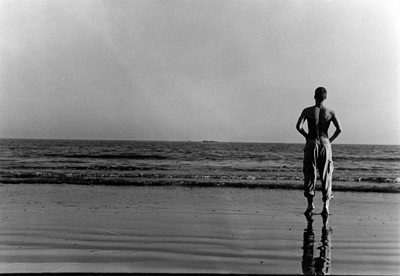All Nonfiction
- Bullying
- Books
- Academic
- Author Interviews
- Celebrity interviews
- College Articles
- College Essays
- Educator of the Year
- Heroes
- Interviews
- Memoir
- Personal Experience
- Sports
- Travel & Culture
All Opinions
- Bullying
- Current Events / Politics
- Discrimination
- Drugs / Alcohol / Smoking
- Entertainment / Celebrities
- Environment
- Love / Relationships
- Movies / Music / TV
- Pop Culture / Trends
- School / College
- Social Issues / Civics
- Spirituality / Religion
- Sports / Hobbies
All Hot Topics
- Bullying
- Community Service
- Environment
- Health
- Letters to the Editor
- Pride & Prejudice
- What Matters
- Back
Summer Guide
- Program Links
- Program Reviews
- Back
College Guide
- College Links
- College Reviews
- College Essays
- College Articles
- Back
The Black Belt
What does it mean to be a black belt in karate? Does it mean mastering every technique? Does it mean being unbeatable in combat? Does it mean becoming the epitome of discipline?
"A karate black belt…" said my sensei, "…is a role model."
A look of disappointment spread across my face as I sat on the rock-hard cafeteria floor dojo listening to my sensei. I tried to derive a more satisfactory meaning from my sensei's dull and unimaginative response.
"Do you mean being a role model to your opponents so they're afraid to fight you?" I asked cleverly.
"No. A role model is the epitome of responsibility and leadership; the most important aspects to becoming a true black belt. That is why I've decided to assign you senpai duties."
A senpai, in karate, is a high ranked student in a dojo that assists the sensei and teaches lower ranked students. I was a first-dan black belt (the lowest rank of black belt) and upon receiving news of my promotion, contrary to the expected reaction of being promoted, was quite disappointed. My disappointment stemmed from my unquenchable thirst for self-improvement. High-level karate competition not only requires determination and skill; it also requires a significant amount of time investment, and with the addition of senpai duties I was afraid my practicing time would be severely reduced. Little did I know, my promotion to sempai would bridge the gap between my selfish adolescence and altruistic adulthood.
My duties as a senpai in my dojo were, to say the least, quite tedious. I had to open up the cafeteria dojo everyday, put up rows upon rows of heavy tables to clear space, warm up the students with monotonous exercises, and teach them a multitude of techniques. Uninspired and moody, I trudged through my daily duties like they were a sickness. Only after the first class, when the students left, did I have time to train with my sensei.
After many days of seemingly wasted time, a certain incident broke the monotony. During warm up exercises, one of the younger students suddenly stopped in place and looked down at the floor. Quivering and bending over, the student's pants started to get soaked, and soon the floor was covered with a small puddle of yellow liquid.
"Eww! He peed his pants!" one student cried.
The room of students collectively laughed mockingly as the one embarrassed student started to cry. Realizing the situation I tried to look around for guidance from adults, but to no avail, as I was the eldest around. I quickly rushed the embarrassed child to the bathroom to help clean him up.
Devastated, red-faced and crying uncontrollably, the student cried out for his parents as I attempted to clean him up. The helpless little boy before me was reminiscent of an earlier version of myself, and intense empathy swelled in my heart
When I finished cleaning I suddenly remembered the group of mocking students back in the cafeteria and a powerful fury swept over me. Determined to set the disrespectful students straight I re-entered the cafeteria with new resolve. The students, still standing around the puddle of urine, were laughing and gossiping with each other in disgust. I stormed up to them and reprimanded them fiercely. I made the students apologize and tried to teach them the errors of their ways, but suddenly, during my lecture, I had a revelation. Who was I to lecture these kids? What qualified me to teach people? I remembered clearly. I was the senpai. The teacher. The leader. The role model. And being the role model, I had something the others did not: responsibilities. And for many days I neglected to take my responsibilities seriously and, as a result, my students neglected to take my teachings seriously.
The many classes that followed my epiphany were met with new found vitality. I came to class early to help students, cleaned the dojo floor, and led warm ups with great vivacity. Determined to improve my students I, in turn, improved myself and ultimately quenched the thirst for advancement that I desperately yearned for. Yet these improvements were not limited to karate. Responsibility and leadership, values that I held high in my role as a senpai, would forever burn their importance upon my susceptible teenage mind. Retrospectively, I've realized that a black belt is not just a piece of fabric that is worn as a badge of accomplishment: it is a moral guideline, a set of values, and when I have long passed my time as a senpai, I will always be wearing my black belt.

Similar Articles
JOIN THE DISCUSSION
This article has 0 comments.
